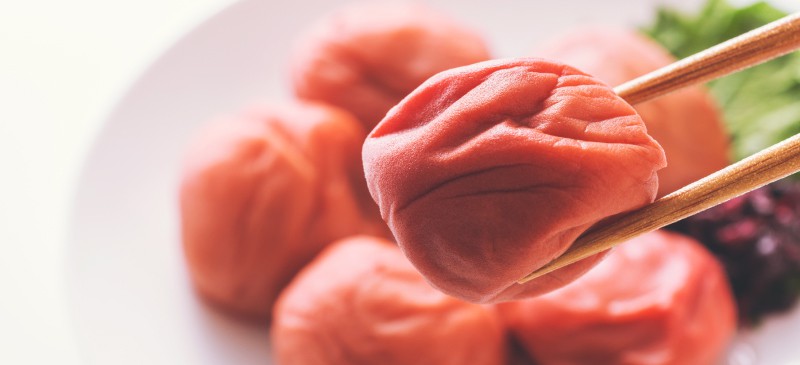This Dr. Axe content is medically reviewed or fact checked to ensure factually accurate information.
With strict editorial sourcing guidelines, we only link to academic research institutions, reputable media sites and, when research is available, medically peer-reviewed studies. Note that the numbers in parentheses (1, 2, etc.) are clickable links to these studies.
The information in our articles is NOT intended to replace a one-on-one relationship with a qualified health care professional and is not intended as medical advice.
This article is based on scientific evidence, written by experts and fact checked by our trained editorial staff. Note that the numbers in parentheses (1, 2, etc.) are clickable links to medically peer-reviewed studies.
Our team includes licensed nutritionists and dietitians, certified health education specialists, as well as certified strength and conditioning specialists, personal trainers and corrective exercise specialists. Our team aims to be not only thorough with its research, but also objective and unbiased.
The information in our articles is NOT intended to replace a one-on-one relationship with a qualified health care professional and is not intended as medical advice.
Umeboshi Plums: Liver Cleanser & Cancer Fighter
September 24, 2018

Sour, salty and chockfull of health benefits, umeboshi plums have been a staple in Japanese cuisine for centuries. Also known as the “sour plum,” “Japanese apricot” and “Japanese plum,” the umeboshi plum is made from dried and pickled ume fruit, a type of fruit closely related to the apricot.
Umeboshi are round and wrinkled with a distinctly sour taste thanks to their high content of citric acid. In fact, ume fruit are harvested at the end of June, right when their juice has reached peak acidity. Because of their intense flavor, umeboshi is typically combined with white rice and consumed as a side dish or inside a rice ball. Umeboshi paste and umeboshi vinegar are also available for an easy way to spice up any dish.
In terms of nutrition, umeboshi contains a good chunk of the potassium, manganese and fiber you need in a day. Plus, it’s low in calories, giving you the most nutrition bang for your buck.
Besides boasting a pretty impressive nutrient profile and distinct flavor, this pickled plum has also been shown to have many beneficial effects on health. Studies show that it can reduce liver damage, support digestion and regularity and even block the growth of cancer cells. If you’re looking to optimize your diet, improve your health, and squeeze in as many nutrients into your day as possible, umeboshi may be the perfect dietary addition. (1, 2, 3)
Umeboshi Plums Nutrition Facts
Umeboshi is low in calories but contains a good amount of vitamins, minerals, antioxidants and fiber.
100 grams (or about 10 pieces) of umeboshi contains approximately (4):
- 33 calories
- 1 gram protein
- 0 grams fat
- 3.4 grams dietary fiber
- 10 grams carbohydrate
- 440 milligrams potassium (9 percent DV)
- 0.2 milligrams manganese (9 percent DV)
- 0.02 milligrams thiamin (2 percent DV)
- 7 micrograms vitamin A (1 percent DV)
- 0.01 milligrams riboflavin (1 percent DV)

7 Umeboshi Plum Benefits
1. Protects the Liver
Umeboshi has some potent properties that could help protect the liver. The liver plays a vital role in detoxification, fat metabolism and the production of important proteins used for blood clotting, so it’s critical to keep it functioning efficiently. Liver damage can be caused by a multitude of factors like infection, excessive alcohol consumption and even obesity.
Some research has found that including umeboshi in your diet could help preserve the function of the liver. A 2012 study in the World Journal of Gastroenterology followed 58 patients with liver disease and found that supplementing with ume fruit extract actually decreased liver damage. (5)
This means that umeboshi plums could potentially aid in the treatment and prevention of liver disorders that affect millions of individuals worldwide, such as cirrhosis, nonalcoholic fatty liver disease and hepatitis.
2. Promotes Gastrointestinal Health
Because umeboshi plums are a high-fiber food, they can help support digestion as well as the health of the gastrointestinal tract. This is because the dietary fiber found in umeboshi moves through the body undigested, adding bulk to stool and promoting regularity. (6)
Ume fruit has been shown to have a natural laxative effect. A 2013 animal study found that giving rats ume fruit improved gastric motility, or the movement of food through the digestive tract, and helped treat constipation. (7)
Umeboshi may also help alleviate symptoms caused by gastrointestinal problems. A study in 2015 comprised of 392 participants showed that eating umeboshi daily improved gastric motility and significantly reduced the symptoms of acid reflux. (8)
3. Helps Block Cancer Growth
Umeboshi contains some powerful compounds that may be beneficial in the prevention and natural treatment of cancer. A 2007 study treated liver cancer cells with an extract from ume fruit and found that the ume fruit extract managed to stop the growth of cancer cells. (9)
Another study published in Tumori treated pancreatic cancer cells with an extract from ume fruit and also noted that it successfully stopped cancer growth. Furthermore, the ume fruit extract managed to kill off cancer cells while sparing the normal, healthy cells. (10)
In addition to liver and pancreatic cancer cells, other studies have shown that ume fruit extract may be able to help block the growth of other types of cancer cells as well. In fact, ume fruit extract has also been shown to be beneficial in treating both breast cancer and skin cancer. (11, 12)
4. High in Antioxidants
From a poor diet to factors like stress, smoking and pollution, there are many ways that free radicals can form in the body. These highly unstable molecules cause oxidative damage that can contribute to the development of chronic disease. (12)
Antioxidants are substances that neutralize dangerous free radicals to help prevent damage to cells. Studies show that antioxidants can reduce the risk of many health problems, including heart disease, cancer and diabetes. (13, 14, 15)
Umeboshi plums are one of the great health-promoting antioxidants foods. A 2014 study demonstrated that the antioxidants found in ume fruit are especially effective when it comes to reducing and stabilizing free radicals. Incorporating a few umeboshi plums into your diet each day could be a simple way to boost both your antioxidant intake and your health. (16)
5. Strengthens and Improves Bone Health
Umeboshi plums can benefit bone health thanks to their high amount of polyphenols. Polyphenols are a type of plant compound that act as antioxidants, neutralizing the harmful free radicals that can contribute to chronic disease.
A study published in Food Chemistry discovered that the specific polyphenols found in ume fruit exhibit anti-osteoporosis activities. Osteoporosis is a condition that leads to bone loss, causing the bones to become weak and brittle while increasing the risk of breaks and fractures. The polyphenols in ume fruit were able to increase the production of collagen, the protein that forms the structure of bones, while also enhancing the function of osteoblasts, the cells that are responsible for bone synthesis. (17)
6. Prevents Cavities and Oral Disease
Some research has found that ume fruit possesses natural anti-bacterial properties and could help block the growth of harmful bacteria that cause disease. Because of this, ume fruit and umeboshi may even be able to enhance oral health and prevent the formation of cavities.
A 2011 study found that ume fruit extract was able to inhibit the growth of several strains of bacteria known to contribute to oral diseases, such as gingivitis. Another study published in Medical Hypotheses had similar findings, noting that ume fruit extract was able to kill off a specific strain of bacteria notorious for causing cavities. (18, 19)
7. Stabilizes Blood Sugar
Interestingly enough, adding a few servings of umeboshi fruit into your diet could actually be beneficial for your blood sugar. A 2013 study found that ume fruit affects a specific receptor responsible for increasing the uptake of glucose in the body. With more glucose able to be transported and used by your cells, blood sugar levels can normalize and remain steady. (20)
Additionally, umeboshi plums are packed with both fiber and antioxidants. Dietary fiber can help slow the absorption of glucose, preventing spikes and crashes in blood sugar levels. Meanwhile, antioxidants can reduce the oxidative stress that leads to the development of diabetes and worsens complications. (21)

Forms of Umeboshi
Umeboshi is available in several different forms. Umeboshi plums are made using ume fruit that has been pickled in a salt brine. The plums can later be seasoned, sweetened or sun-dried and are sold in either whole or dried form.
Following this process, umeboshi can also be pureed to form an umeboshi paste that is frequently used as a condiment. Additionally, the sour brine that is used to pickle the ume fruit is sold as umeboshi vinegar, a common ingredient used in Japanese cooking.
How to Use Umeboshi
Umeboshi, umeboshi paste and umeboshi vinegar can all be found in specialty stores, Asian grocery stores, and online retailers for use in a variety of different dishes.
Umeboshi plums are typically paired with rice to tone down their strong flavor. They can be consumed in onigiri, rice balls wrapped in seaweed, or with ochazuke, a traditional dish in which green tea is poured over cooked rice. Umeboshi can also be cooked, seasoned and served for dinner or used as a delicious addition to a hot cup of tea.
Umeboshi paste is often used as a condiment that can bring the distinct flavor of umeboshi to marinades, salad dressings, dips and spreads. It can also be coupled with cooked vegetables or corn on the cob to give any side dish a nutritious upgrade.
Umeboshi vinegar is a staple in Japanese cooking. It is usually drizzled over sautéed vegetables or rice. It can also be used to bring a unique seafood flavor to vegan or vegetarian dishes.
Here is a umeboshi plum recipe to try:
Umbeboshi Plum Tea
Serves: 1
INGREDIENTS:
- 1 cup kukicha tea
- 1 umeboshi plum, pitted and shredded
- 2–3 drops coconut aminos
- 1 slice fresh ginger
DIRECTIONS:
- Bring kukicha tea to a boil and then remove from heat.
- Stir in umeboshi plum, soy sauce and fresh ginger.
- Steep for 2 minutes before serving and then enjoy.
Here are a few more umeboshi plum recipes to try:
Risks and Side Effects
Although there are no known negative side effects of umeboshi plums, you should discontinue consumption immediately if you experience an allergic reaction or any negative symptoms after eating umeboshi plums.
Final Thoughts
Umeboshi plums may be tiny, but they pack a powerful punch when it comes to nutrition. With a long list of health benefits ranging from protecting the liver to strengthening the bones, incorporating this pickled fruit into your diet just a few times per week has the potential to make a big difference in your health.

